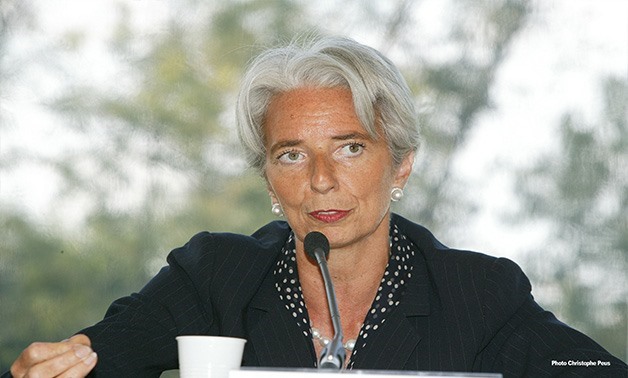
Managing Director of IMF Christine Lagarde - Wikimedia
CAIRO - 29 April 2017: An International Monetary Fund (IMF) team led by Mission Chief for Egypt Chris Jarvis will visit Cairo from April 30 to May 11 to conduct the first review for Egypt’s economic reform program, IMF spokeswoman, Randa el-Naggar told Egypt Today Saturday.
After floating its pound, introducing a value-added tax and slashing fuel subsidies as part of a comprehensive reform program, Cairo clinched a $12 billion extended facility loan agreement with the IMF to support the country’s ambitious reform program. Shortly after the loan’s approval, Cairo received a first tranche of $2.7 billion.
The IMF mission will conduct the program’s first review in order to approve the disbursement of a $1.2 billion second tranche of the loan.
Following a meeting with Egypt’s President Abdel Fatah al-Sisi in Washington earlier in April, Managing Director of the IMF Christine Lagarde praised Egypt's "strong" economic reform program.
Meanwhile, Lagarde admitted the pains of the ambitious reforms which pushed inflation rates to more than a 30-year high. "We recognize the sacrifices made and the difficulties faced by many Egyptian citizens, especially due to high inflation."
“The IMF is working to help the government and the Central Bank bring inflation under control and supports the steps the Egyptian authorities are taking to protect its poorest and most vulnerable citizens,” said Lagarde.
On the sidelines of the IMF- World Bank joint spring meetings, held in Washington April 21-23, IMF Middle East and Central Asia Department Director Jihad Azour hinted that Egypt should use monetary and fiscal policy instruments including interest rates to curb the soaring inflation.
However, economists argue that raising the interest rates would not be effective anymore in containing an inflation triggered by higher production cost after the float along with other reforms, not an increase in demand.
Comments
Leave a Comment